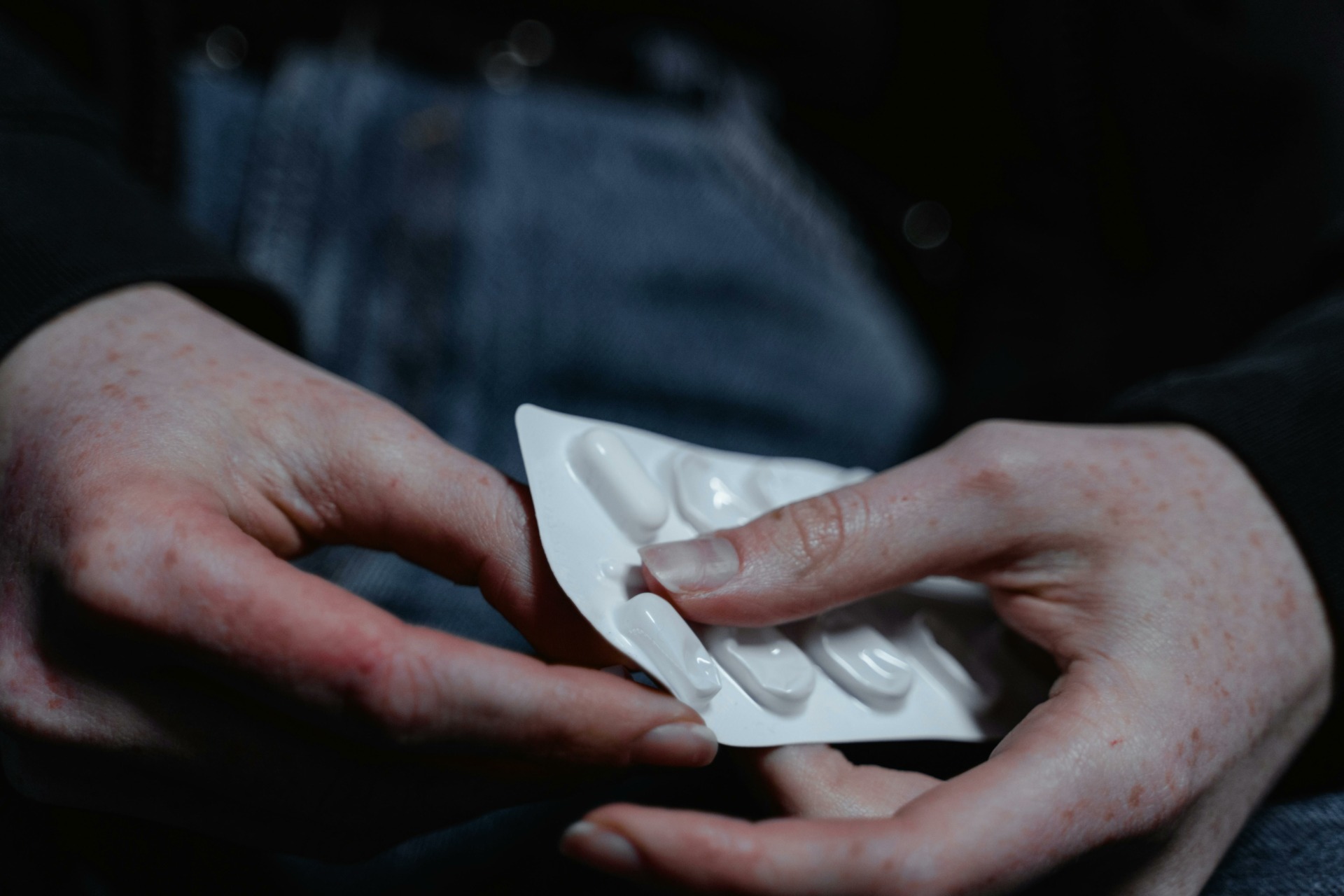As we age, our bodies go through significant changes—muscle mass decreases, bone density weakens, cognitive function may decline, and the risk of chronic diseases increases. While a balanced diet, regular exercise, and good sleep are the cornerstones of healthy aging, supplements can sometimes play a valuable supporting role.
But with countless options on the market, it’s easy to get lost in the noise. Some supplements are backed by science, while others offer more hype than help. In this guide, we’ll explore which supplements actually work for healthy aging and which ones might not be worth your money.
🌟 Why Consider Supplements as You Age?
As we get older, our bodies absorb nutrients less efficiently, and certain vitamins and minerals become harder to obtain from food alone. Factors like medication use, chronic conditions, and lifestyle changes can all affect nutrient absorption and increase the risk of deficiencies.
That said, supplements should complement a healthy diet—not replace it. Think of them as an extra tool in your health toolkit.
✅ Supplements That Actually Work for Healthy Aging
🦴 1. Vitamin D & Calcium (For Bone Health)
- Why it matters: As we age, bones become more fragile, increasing the risk of osteoporosis and fractures. Vitamin D helps the body absorb calcium, which is essential for bone strength.
- The science: Older adults often have Vitamin D deficiencies, especially those who spend less time outdoors.
- Recommended dose:
- Vitamin D: 800–1000 IU per day
- Calcium: 1000–1200 mg per day
💡 Tip: Pair Vitamin D with calcium-rich foods for better absorption.
🧠 2. Omega-3 Fatty Acids (For Brain and Heart Health)
- Why it matters: Omega-3s, particularly EPA and DHA, reduce inflammation, support heart health, and improve brain function.
- The science: Studies show Omega-3s can lower the risk of heart disease, slow cognitive decline, and improve mood.
- Recommended dose: 1000 mg of combined EPA and DHA daily.
💡 Tip: If you’re not a fan of fish, look for high-quality fish oil or algae-based supplements.
💪 3. Creatine (For Muscle Strength and Brain Function)
- Why it matters: Creatine isn’t just for bodybuilders—it’s an excellent supplement for older adults. It helps maintain muscle mass, strength, and even supports cognitive health.
- The science: As we age, sarcopenia (age-related muscle loss) becomes a concern. Creatine helps increase muscle strength, improves endurance, and aids in quicker recovery post-exercise. Emerging studies also suggest it may protect against cognitive decline by providing energy to brain cells.
- Benefits of Creatine for Older Adults:
✔️ Increases muscle strength and mobility
✔️ Supports brain health and memory
✔️ Improves energy levels and exercise performance - Recommended dose: 3–5 grams daily (no need for a loading phase).
💡 Tip: Combine creatine with light strength training for maximum benefits.
🧬 4. Taurine (For Heart, Muscle, and Longevity)
- Why it matters: Taurine is an amino acid-like compound that plays a role in heart health, brain function, muscle strength, and even longevity. Our natural taurine levels decline with age, making supplementation beneficial.
- The science: Recent research links taurine to reduced inflammation, improved heart function, and better exercise performance. Some studies suggest taurine may help slow down aging at the cellular level.
- Benefits of Taurine for Older Adults:
✔️ Supports heart health and blood pressure regulation
✔️ Enhances muscle recovery and reduces fatigue
✔️ May improve cognitive health and longevity - Recommended dose: 1000–3000 mg daily
💡 Tip: Taurine is especially useful for older adults who experience muscle weakness, fatigue, or cardiovascular concerns.
💪 5. Protein Supplements (For Muscle Maintenance)
- Why it matters: After age 50, we naturally lose muscle mass, leading to weakness and an increased risk of falls. Older adults often need more protein than younger people to maintain muscle.
- The science: Protein supplements, like whey or plant-based protein powders, can help fill dietary gaps, especially for those with smaller appetites.
- Recommended dose: 20–30 grams post-exercise or as needed to reach daily protein goals.
💡 Tip: Combine with creatine for even better muscle health results.
🧠 6. Probiotics (For Gut and Immune Health)
- Why it matters: A healthy gut microbiome supports digestion, strengthens the immune system, and can even influence mood and brain health.
- The science: Aging often leads to a decline in beneficial gut bacteria. Probiotics help restore balance, reducing inflammation and supporting digestion.
- Recommended dose: Look for supplements containing 1–10 billion CFUs and strains like Lactobacillus and Bifidobacterium.
💡 Tip: Combine with fiber-rich foods for a healthier gut.
🧴 7. Collagen (For Skin, Joints, and Bone Health)
- Why it matters: Collagen is vital for skin elasticity, joint health, and strong bones—but natural production declines with age.
- The science: Collagen supplements can improve skin hydration, reduce wrinkles, and ease joint pain.
- Recommended dose: 5–10 grams of hydrolyzed collagen peptides daily.
💡 Tip: Taking collagen with Vitamin C enhances absorption.
🌾 8. Magnesium (For Muscle, Sleep, and Heart Health)
- Why it matters: Magnesium supports muscle and nerve function, heart health, and better sleep—areas that often decline with age.
- The science: Many older adults are magnesium-deficient, leading to cramps, fatigue, and poor sleep quality.
- Recommended dose: 300–400 mg daily (Magnesium Glycinate is gentle on the stomach).
💡 Tip: Magnesium can also help reduce anxiety and promote relaxation.
❌ Supplements That May Not Be Worth It
⚠️ 1. Multivitamins
While they seem like a simple fix, most multivitamins offer limited benefits for healthy aging and may contain unnecessary or poorly absorbed forms of nutrients.
💡 Better approach: Focus on targeted supplements based on your individual needs.
⚠️ 2. Antioxidant Mega-Doses (Vitamin C, E, Beta-Carotene)
While antioxidants from food are essential, mega-doses in supplement form haven’t been shown to significantly reduce age-related diseases and, in some cases, could be harmful.
💡 Better approach: Get antioxidants from whole foods like berries, nuts, and leafy greens.
⚠️ 3. Glucosamine and Chondroitin (For Joint Health)
Although popular for joint pain, scientific results are mixed. Some people report relief, but others see no noticeable benefits.
💡 Better approach: Collagen, Omega-3s, and regular low-impact exercise may offer better joint support.
⚠️ 4. Ginkgo Biloba (For Memory)
Often marketed as a brain booster, Ginkgo Biloba hasn’t consistently shown benefits for improving memory or preventing cognitive decline.
💡 Better approach: Omega-3s, B vitamins, taurine, and engaging in brain-stimulating activities offer stronger cognitive support.
🛡️ Tips for Choosing the Right Supplements
- ✅ Check for third-party testing (NSF, USP) to ensure purity and potency.
- 💊 Choose bioavailable forms (e.g., Magnesium Glycinate over Oxide) for better absorption.
- 🧑⚕️ Consult your doctor, especially if you take medications or have chronic conditions.
- 🧃 Pair supplements with a balanced diet—they’re meant to complement, not replace, good nutrition.
🌟 Final Thoughts: The Best Supplements for Aging Well
Not all supplements are created equal. While some are backed by strong science and can significantly support muscle strength, brain health, heart function, and longevity, others may do little more than lighten your wallet.
Creatine and taurine—once thought to be only for athletes—are now proving to be powerful tools for healthy aging, supporting muscle health, cognitive function, and overall vitality. Combined with foundational supplements like Omega-3s, Vitamin D, probiotics, and magnesium, they can help you age stronger and smarter.
Disclaimer: Always consult with your doctor or a qualified healthcare professional before starting any new supplement. Individual responses to supplements may vary, and a healthcare provider can help determine what’s best for you.
✨ Remember, it’s never too late to start supporting your health. Small steps today can lead to big changes tomorrow.
Photo by MART PRODUCTION: https://www.pexels.com/photo/a-person-taking-meds-7278927/



Leave a Reply